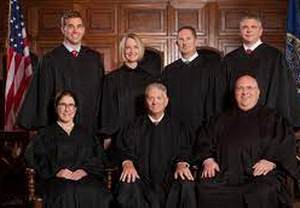![]()

The Nebraska Supreme Court says a state agency was acting within its powers when it told a news organization that it would have to pay nearly $45,000 to fulfill its request for hundreds of public records on water pollution.
The high court ruled Friday that state law allows special fees to comply with records requests that take more than 4 hours to compile and that the amount quoted to the nonprofit news provider Flatwater Free Press was reasonable.
The ruling was criticized by multiple media outlets as giving state agencies a way to get around Nebraska’s open records law. Ironically, it came during Sunshine Week, an observance of the importance of public access to government information
Flatwater Editor Matthew Hansen blasted the ruling in an editorial, writing it “clears the way for the state of Nebraska to charge an ungodly amount of money to gain access to public records related to the state’s growing nitrate-in-groundwater problem,”
Hansen called the decision “a blow to Nebraska’s public records law, a law written to protect media outlets like ours and Nebraskans like yourselves from the secrecy of those who hold power.”
According to court records, a Dept of Environment and Energy manager initially estimated it would cost $2,000 to fill a broad request seeking all emails mentioning “nitrate,” “fertilizer” and other keywords over a 12-year period.
Flatwater then narrowed its request to emails containing those words among a handful of natural resource districts over a nearly six-year period, but the manager upped the estimated cost to over $44,000.
The price tag was based on an hourly rate for 102 employees to search, analyze and save emails, as well as the hours needed to review the emails to see if they should be excluded as confidential.
A district court judge sided with Flatwater, saying state law allows fees to be charged only for physically redacting emails, not reviewing them to see whether they can legally be withheld. The state appealed and the Supreme Court reversed the district court.
